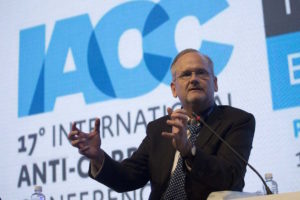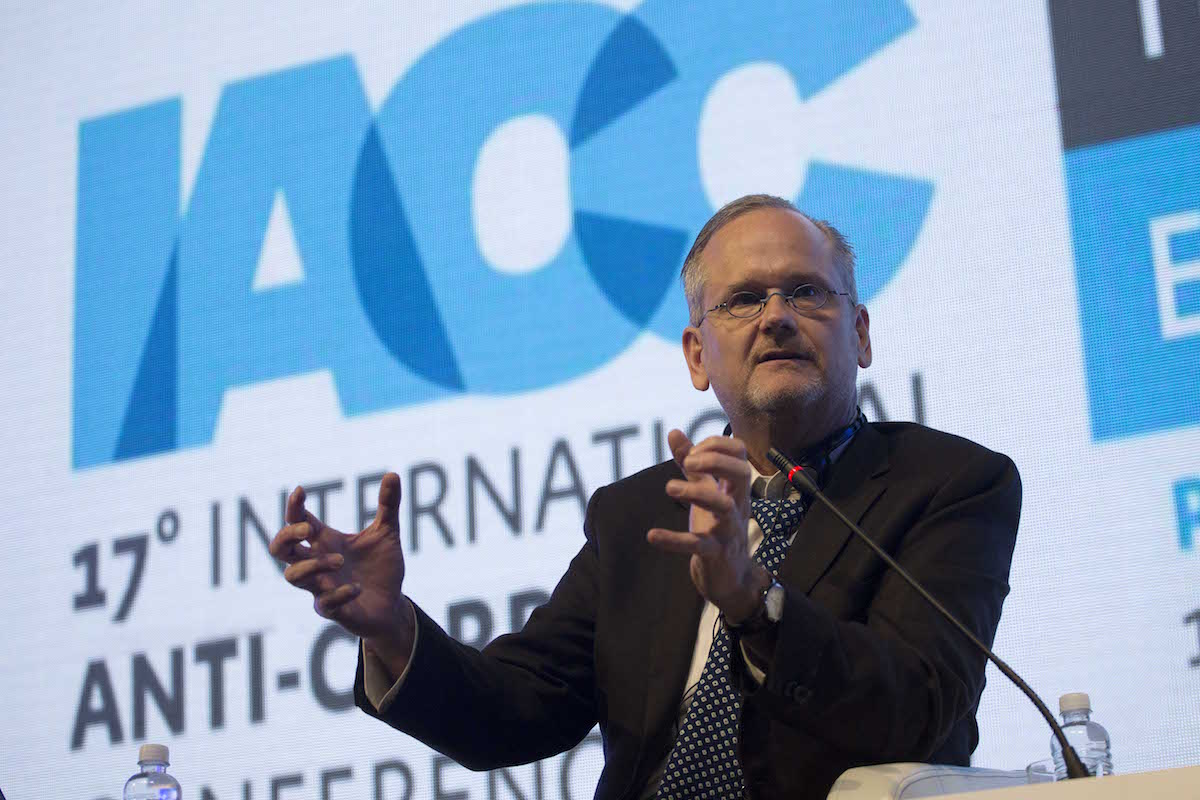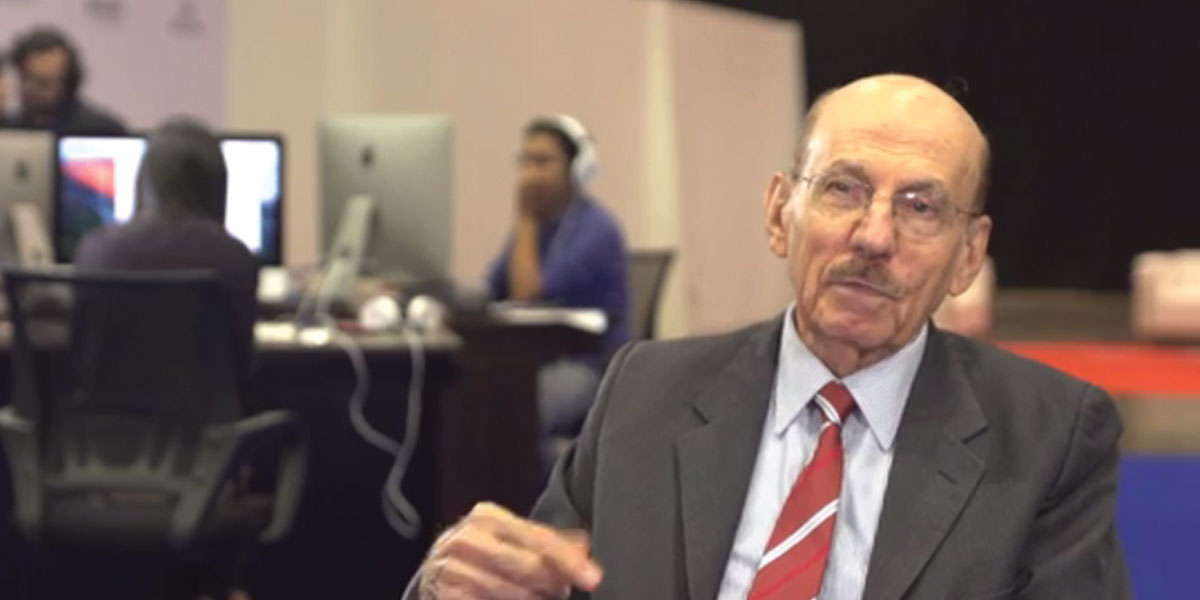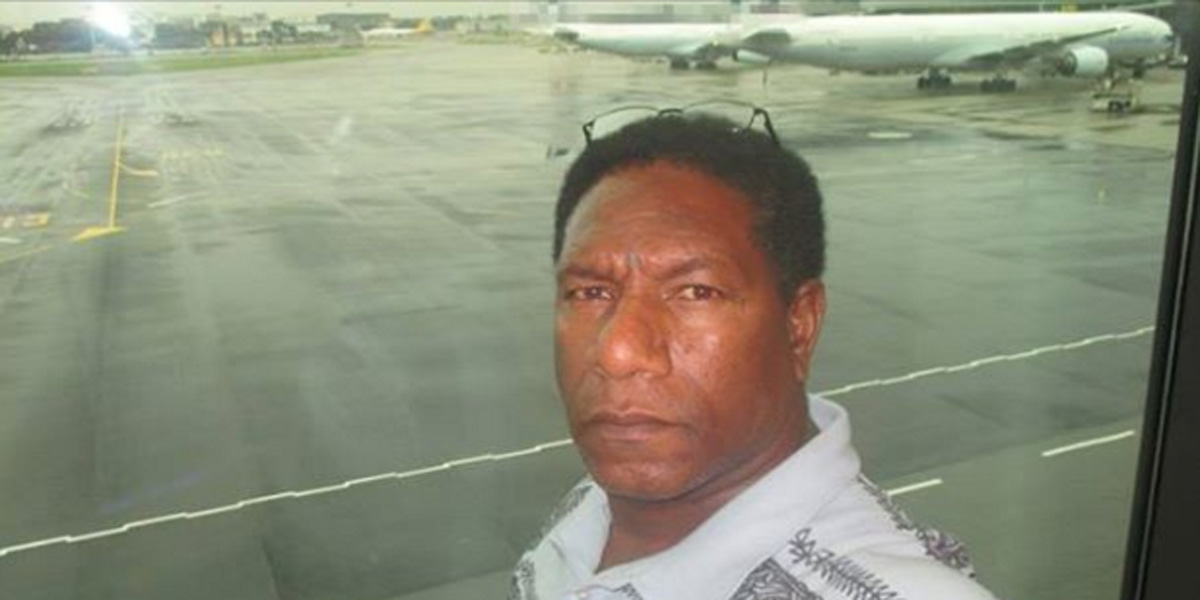
Lawrence Lessig, Roy L. Furman Professor of Law in Harvard Law School, during the panel “Time for equity” in the second day of 17th International Anti-Corruption Conference, IACC in Panama City, Panama, Friday, Dec. 2, 2016. (Mauro Pimentel)
The “Time for Equity” session at the 17th International Anticorruption Conference in Panama started, somewhat surprisingly, with the spotlight fixed firmly on the United States. Session moderator Sarah Chayes stated that the U.S. has battled systematized corruption for years. Chayes, a senior associate at the Carnegie Endowment for International Peace, said that especially after the recent presidential election the U.S. needs its own strategic and furious anti-corruption organisation.
Harvard Law professor and campaign finance reform advocate Lawrence Lessig concurred. Lessig pointed out that for many years, corruption has primarily meant the corruption of individuals, instead of the corruption of institutions, which might in fact be more important. He said we often think of corrupt institutions as being built by corrupt individuals, but that is not necessarily true, and there are plenty examples of this.
In Lessig’s opinion, the United States Congress is the most corrupt representative body in all of the Western world. The key question, he said, is money, with members of Congress spending too much time working for the benefit of 1% of the people they represent. Their focus is on what the figures who back their elections campaigns care about, he said, and during the election campaigns as much as 70% of their time is spent raising the money to be re-elected to Congress.
As a result, he said, members of Congress are unable to deal with the real, practical issues that are important for the majority of their constituents, a dynamic that does not comport with the ideal of a representative democracy.
Lessig doesn’t believe that every congressman should be considered corrupt by default. According to him, the underlying system in the United States has become corrupt. People that come to Washington, D.C. for good reasons find themselves in a corrupt institution. But they do have an obligation to reform it, and when they don’t, they become part of it.
Lessig said we should recognise that America’s failure to be a representative democracy comes at enormous costs to the whole world, particularly on topics such as climate change and weapons sales.
Nikita Kuzmin has been working in newspapers and online media since 2009. Kaliningrad (Russia) regional newspaper “Dvornik” (Janitor) is closely connected to Kaliningrad news and analytics online media RUGRAD.EU. It focuses on the politics and economics mainly in regional aspects. For the moment he is a contributing editor both at “Dvornik” and RUGRAD.EU.


